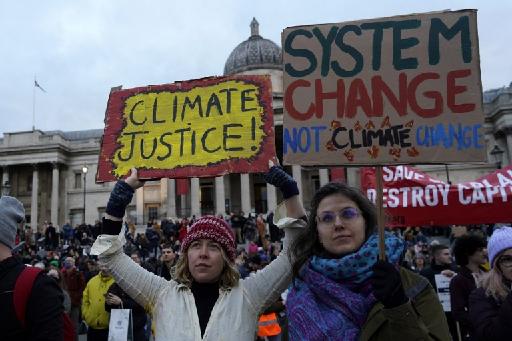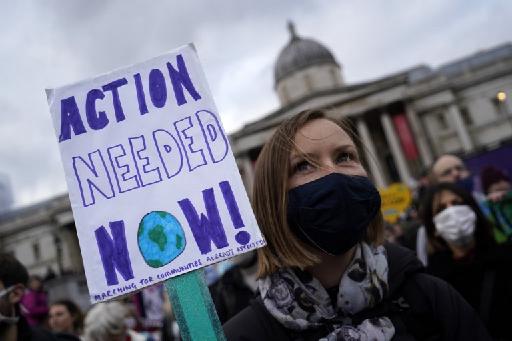Whether it’s charcoal, methane or “green” finance, not a day passes at the COP26 UN Climate Change Conference without a given country or group of nations announcing commitments or promises.
Fool’s bargain or real progress?
“The proof is in the pudding” as the saying goes, but for many climate activists, Week 2 at COP26 will be decisive for saving a summit seen as crucial, as a “last chance” to keep the 1.5°C target alive Belga News Agency reports. For others, like Swedish environmental activist Greta Thunberg, Glasgow is already a flop.
It would be an understatement to say that expectations were huge at the opening of the conference, postponed for a year because of the Covid-19 pandemic and organised at a time when climate distress signals have been multiplying tragically.
Meeting in Rome on 30-31 October ahead of COP 26, leaders of the G20, whose member countries account for 80% of global greenhouse gas emissions, issued a political confirmation of the main target of the 2015 Paris Agreement: keeping global warming below 2°C compared to pre-industrial levels and, if possible, under +1.5°C.
There, too, reactions to the outcome of the summit of the world’s 20 biggest economies were widely divergent. Some lauded the summit’s results, while others slammed what they saw as a lack of ambition and sense of urgency.
From the start, COP26 generated a series of announcements, launched from among the Heads of State and Government present in the Scottish capital.
Last Tuesday, about 100 countries, home to 85% of the world’s forests, made a commitment to end deforestation. Close to 20 billion private and public dollars – over €17 billion – were pledged to fulfil their promise, which is essential to preserving the immense carbon sinks. Included among the pledges is one for €200 million over five years, made by Belgium.

Credit: Belga
However, some observers noted that a similar series of commitments in 2014 failed to rein in deforestation.
A day later, over 80 countries pledged, at the initiative of the EU and the US, to reduce their methane emissions by 30% by 2030, compared to 2020 levels. This greenhouse gas, the second cause of global warming after CO2, has a much higher warming potential than carbon dioxide. Reducing its emissions could thus help to bring the world closer to the Paris Agreement’s targets.
On Thursday, some 20 countries, including Canada, the UK, the US and many EU members, announced their wish to cease overseas financing of fossil-fuel projects without carbon-capture techniques by the end of 2022. Some even referred to “the beginning of the end for charcoal,” one of the world’s most pollutive fossil fuels.
The list of announcements at COP26 also included Brazil, which said it was reviewing its climate targets upward. So did India, the world’s third-largest polluter, which is now aiming at carbon neutrality by 2070.
Other commitments had to do with the greening of finance, an essential lever, or agriculture, a significant source of methane.
However, the various commitments, promises and undertakings have not prevented people from turning out in large numbers for demonstrations in various parts of the world. Nor have they convinced environmental NGOs.
For Greenpeace, the week has been tough for fossil-fuel companies but not tough enough. Things need to get harder for these companies before Glasgow can be termed a success, the international environmental organisation argued.
Greta Thunberg was even more categorical. “Glasgow is a failure,” she said at the end of a protest by the Fridays for Future movement as the summit’s first week came to an end. For the young Swedish activist, the climate conference is simply “business as usual,” “blah blah blah,” and a “festival of greenwashing.”
Week 2 of the Conference will be marked by the arrival of ministers responsible for the environment. Belgium's Federal Minister Zakia Khattabi, Wallonia’s Philippe Henry and Brussels' Alain Maron will represent the country.
Their counterpart in the Flemish Government, Zuhal Demir, shelved plans to travel to Glasgow this weekend after her Chief of Staff tested positive for Covid-19.
An agreement could be reached in Glasgow on the implementation of Article 6 of the Paris accord, which allows for the establishment of international carbon markets, but this is far from a done deal, given the failure of efforts in this regard at COP 24 in Katowice and COP25 in Madrid.
In any event, even an agreement on Article 6 is unlikely to be enough to make Glasgow a success when the planet is hurtling towards dramatic global warming in excess of 2°C.

